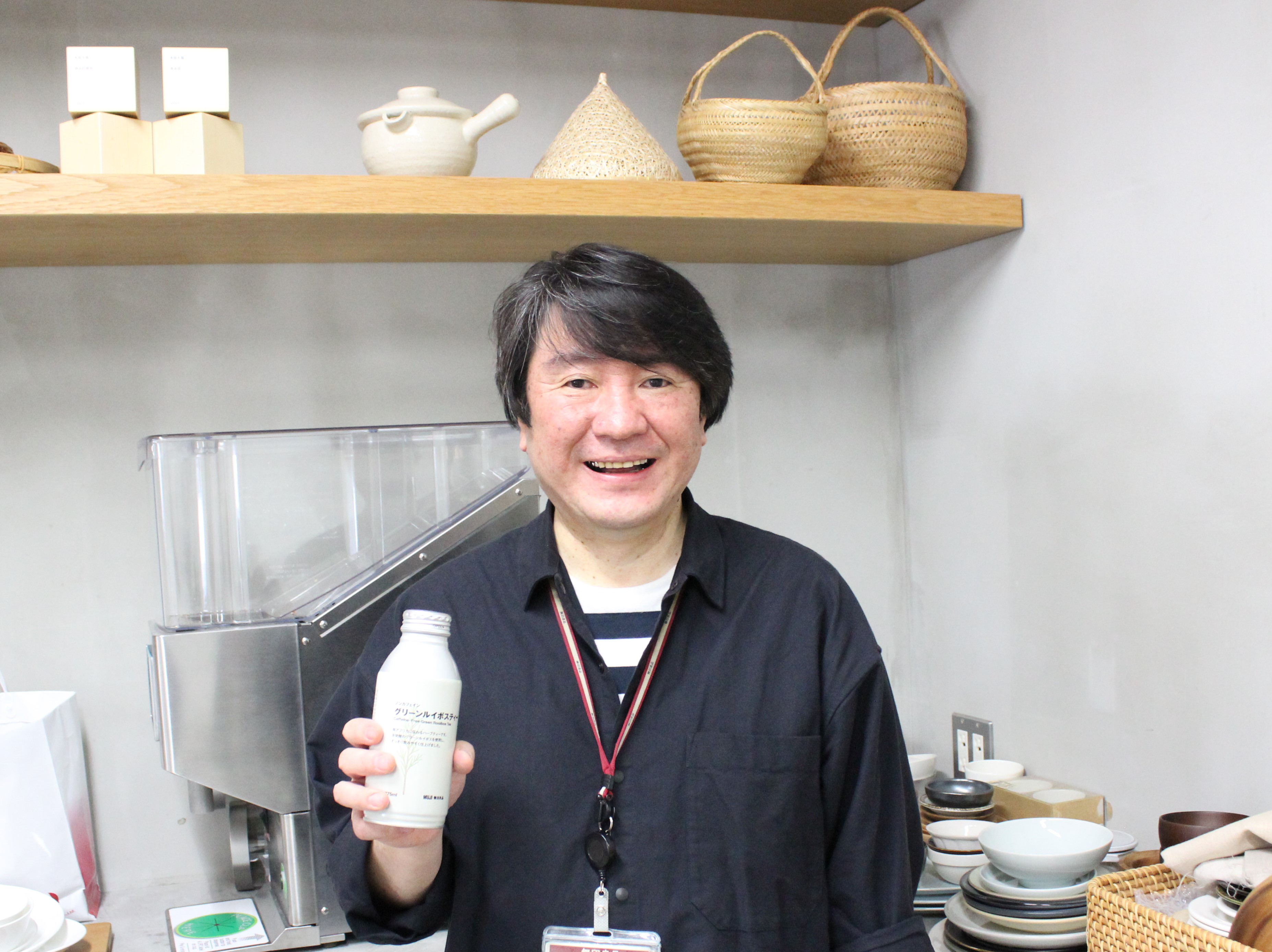
Mr.Takayuki Shingu, General Manager of Food Division Merchandise Development
Since when did we start buying water when we used to turn on the tap and drink it? This small question has led to the expansion of the installation of water refill stations in 307 stores (as of June 29). This time, we talked to Mr. Shingu in charge of the water project, about MUJI's sustainable initiatives in terms of food.
■A Small Awareness can Lead to a Big Effort in Society
The plastic waste problem is one of the major issues facing modern society. When we thought about what MUJI could do to address this issue, we focused on the water sold in our stores. In Japan, there was a long time when we drank tap water, but at some point mineral water was imported from overseas, and water became available for sale. I think we also stopped drinking tap water before we knew it. However, there is no need to buy water in Japan as tap water has always been very safe. We proposed the water supply service because we believe that if the habit of drinking tap water becomes widespread again, we can reduce the waste of plastic bottles.
Since April 2021, we have been expanding our efforts under the keyword, "Let's Start with Water by Ourselves," and have been working with local governments and companies that support our project. For example, we have concluded a cooperation agreement with Kumamoto City, and are proceeding with the installation of water refill stations in Kumamoto City.
In the future, we would like to have not only MUJI stores, but also many local governments and companies interested in our project, and we will not only increase the number of locations where water refill stations are installed, but also make efforts to have water refill stations installed in ordinary homes.
■Creating an Opportunity to Think
When I was reviewing the plastic packaging of our products, I wondered if it would be possible to use recyclable raw materials for PET bottle beverages. We learned that aluminum cans are a material that can be recycled repeatedly, as collection routes are well developed and the recycling rate of collected aluminum cans is 97.9%, while the horizontal recycling rate is also high at 66.9%. One of the deciding factors for us was the fact that the horizontal recycling system was established without us having to come up with a new route.
Another advantage of aluminum cans is that they can extend the shelf life of tea by 40 days due to their high level in light shielding and low permeability, enabling us to reduce food loss. Of course, there are many advantages of PET bottles, but for these reasons, we chose aluminum cans because we felt they had environmental advantages.
We hope that by MUJI promoting this kind of initiative, people who have not been interested in environmental issues will have opportunities to think about it.
■MUJI's Product Development
Among the "Three Principles" that form the basis of MUJI's product development, we always keep in mind to select materials that are considerate of the global environment and producers, and to eliminate waste in all processes. We also believe that we should provide customers with what they really need in the form they truly need it. We do not develop products according to the latest trends, but always from the customer's point of view, so that we can provide what the customer really needs.
We also place importance on the "balance between value and price.” No matter how cheap a product is, if the value of the product is not what the customer expects from us, they will not buy it. This is because customers do not only want MUJI to be cheap. Therefore, we believe that it is necessary to develop products that can meet the expectations of customers by setting prices appropriately while maintaining the product value of MUJI.
■MUJI's Product Development
Among the "Three Principles" that form the basis of MUJI's product development, we always keep in mind to select materials that are considerate of the global environment and producers, and to eliminate waste in all processes. We also believe that we should provide customers with what they really need in the form they truly need it. We do not develop products according to the latest trends, but always from the customer's point of view, so that we can provide what the customer really needs.
We also place importance on the "balance between value and price.” No matter how cheap a product is, if the value of the product is not what the customer expects from us, they will not buy it. This is because customers do not only want MUJI to be cheap. Therefore, we believe that it is necessary to develop products that can meet the expectations of customers by setting prices appropriately while maintaining the product value of MUJI.

